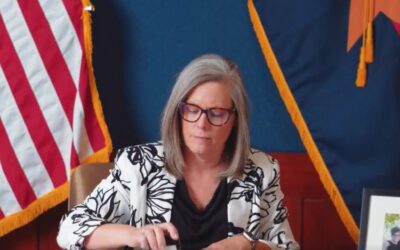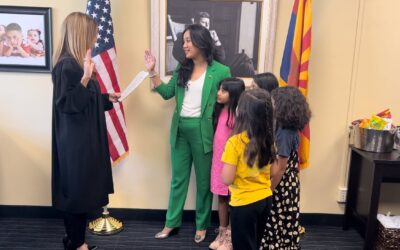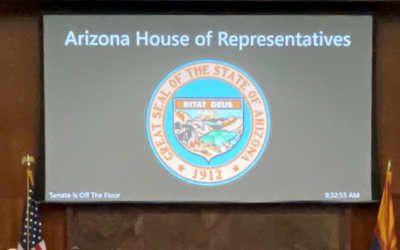By Corinne Murdock |
The struggle over the presence of critical race theory continues with a new bill proposing to ban the controversial academic concept from K-12 classrooms. State Representative Michelle Udall (R-Mesa) introduced the bill, HB2112, which passed 6-4 in the committee that Udall chairs, the Education Committee, on Tuesday.
State Representative Reginald Bolding (D-Laveen), Daniel Hernandez (D-Tucson), Jennifer Pawlik (D-Chandler), Judy Schwiebert (D-Phoenix) voted against the bill.
The bill would prohibit educators from using public money on instruction that blames or judges based on race, ethnicity, or sex. The bill would also prohibit teaching that one race, ethnic group, or sex is inherently moral or intellectually superior; that an individual is inherently racist, sexist, or oppressive either consciously or unconsciously; that an individual should be discriminated against or treated poorly because of their race, ethnicity, or sex; that individual’s moral character is determined by their race, ethnic group, or sex; that an individual is responsible for actions committed by other members of their same race, ethnic group, or sex; that an individual should feel negative emotions because of their race, ethnicity, or sex; and that academic achievement, meritocracy, or traits like hard work are racist or sexist and created to oppress others.
Violation of the bill’s provisions may result in revocation of the educator’s teaching certificate and the charge of a $5,000 fine. School attorneys would confer with the attorney general or county attorney to determine whether a violation occurred.
Critical race theory (CRT) proposes that the U.S. was inherently and systemically racist from its founding and that racism persists through oppressive systems such as capitalism and Christianity. The theory claims that American meritocracy is a myth.
CRT relies on a concept of hierarchies called intersectionality, which asserts that personal traits such as race, gender, class, sexual orientation, disability, etc. determine one’s oppression and privilege. CRT presents a dichotomy: the inherent evil of “whiteness,” and the inherent goodness of “blackness.” In order to fully accept these perspectives, individuals must assume a “race-conscious” outlook on the world and reject the idea that racism comes from beliefs and actions rooted in the intentional hatred of race.
The ultimate goal of CRT is to overthrow this country and remake it in another image.
In the most informal sense of the word, CRT may qualify as a religion. Credit for popularization of the theory is often awarded to Kimberlé Crenshaw, a legal scholar and current law professor at UCLA School of Law and Columbia Law School. In 1995, Crenshaw authored the book “Critical Race Theory: the key writings that formed the movement” in an effort to explain CRT’s nature and purpose.
“Critical Race Theory is an intellectual movement that is both particular to our postmodern (and conservative) times and part of a long tradition of human resistance and liberation,” wrote Crenshaw.
The concepts that make up CRT may be presented independently or under different names, like: social-emotional learning (SEL), culturally responsive education (CRE), and anti-racism. Crenshaw acknowledged these superficial disparities in her 1995 book, assuring readers that unity exists behind these apparent differences.
“Although [CRT] scholarship differs in object, argument, accent, and emphasis, it is nevertheless unified by two common interests. The first is to understand how a regime of white supremacy and its subordination of people of color have been created and maintained in America and, in particular, to examine the relationship between that social structure and professed ideals such as ‘the rule of law’ and ‘equal protection.’ The second is a desire not merely to understand the vexed bond between law and racial power but to change it,” wrote Crenshaw.
Corinne Murdock is a reporter for AZ Free News. Follow her latest on Twitter, or email tips to corinne@azfreenews.com.








